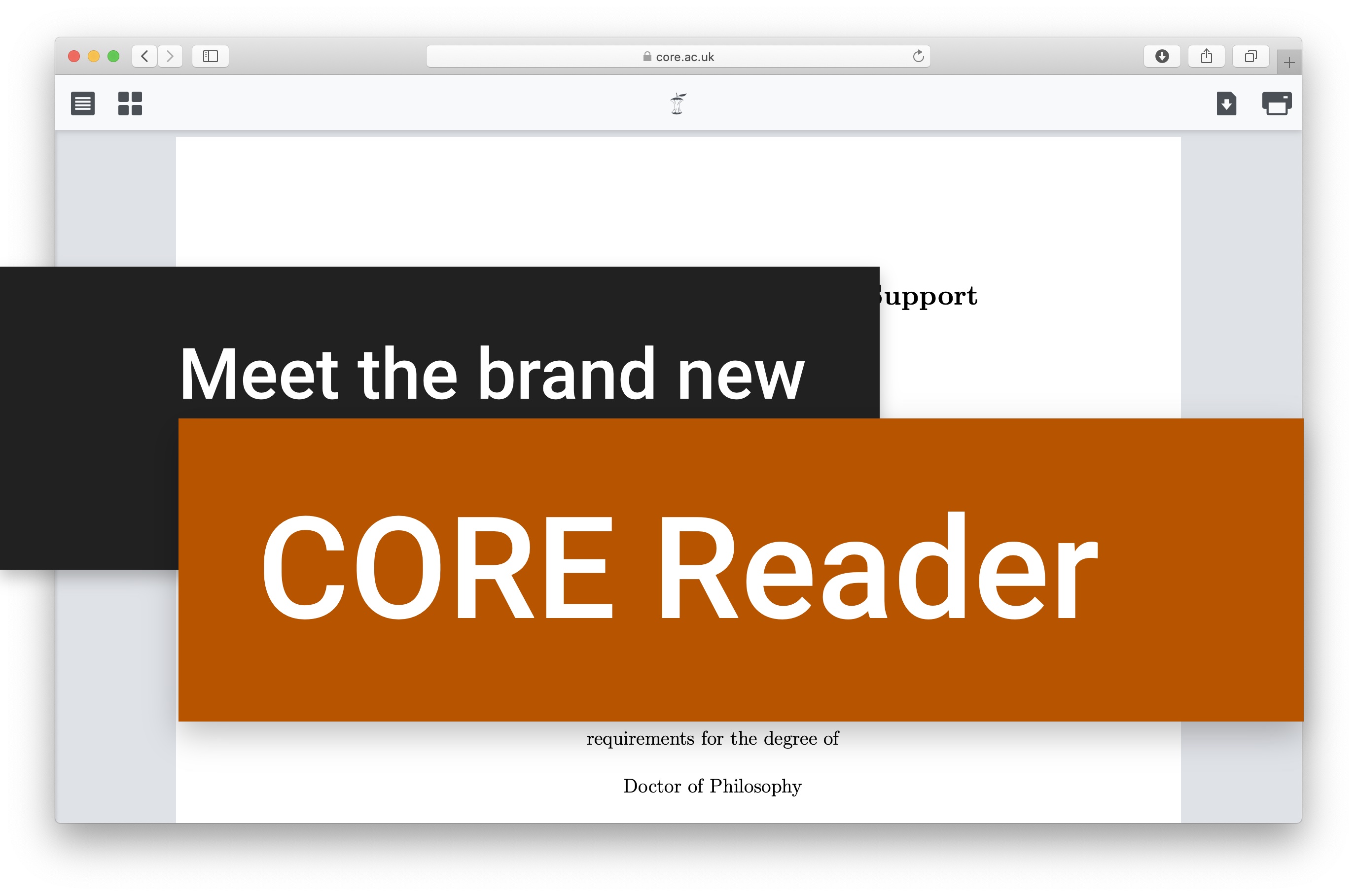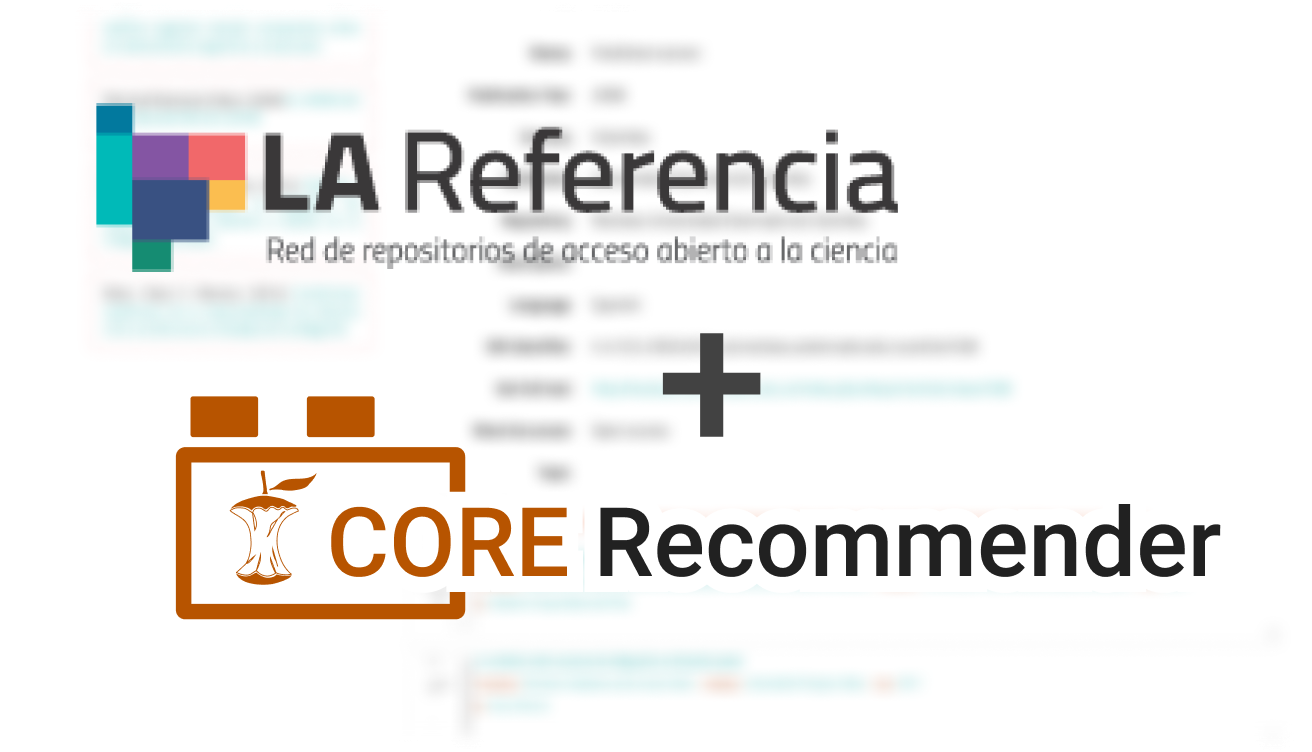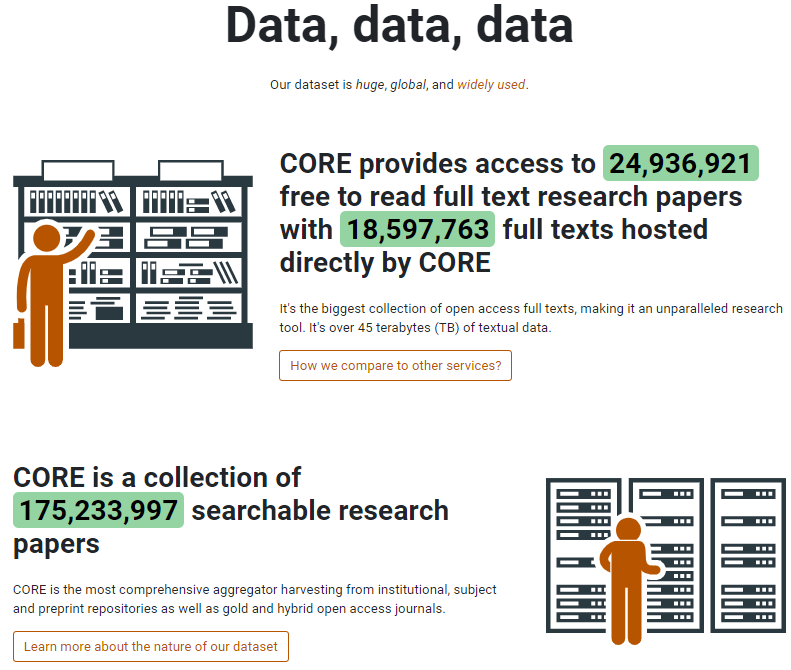Researchers from CORE are organizing a new shared task: the ‘3C’ Citation Context Classification Task, as part of the International Workshop on Mining Scientific Publications, WOSP 2020 (https://wosp.core.ac.uk/jcdl2020/index.html). The new task will be hosted on Kaggle (https://www.kaggle.com/c/about/inclass), which is a popular Machine Learning/Data Science competition hosting platform. The competition uses a portion of the Academic Citation Typing (ACT) dataset (http://oro.open.ac.uk/60670/), which is the largest dataset of its type in existence, which is also the only dataset of citations annotated by authors and the only truly multidisciplinary dataset. Using this dataset, the shared task aims at classifying the citation context in research publications based on their influence and purpose. There will be two subtasks associated with this shared task. The subtask A is a multi-class classification problem, where citations are categorized into six different classes based on the purpose. The second subtask B is a binary classification task, based on the citation influence.
Tag: core
Track compliance of the REF2021 open access policy with the CORE Repository Dashboard
The new and updated CORE Repository Dashboard aims to help UK repository managers comply with the REF2021 Open Access policy. As a global aggregator of open access content collecting research papers from a wide range of repositories around the world, CORE can provide information about deposit compliance and assist institutions with identifying non-compliant outputs, i.e. outputs deposited too late.
The REF2021 compliance tracking tool was presented (26th March) in a fully booked webinar (slides and recording) attended by 131 repository managers and research administrators from the UK Council of Research Repositories (UKCoRR) and the Association of Research Managers and Administrators (ARMA) groups.
CORE Recommender installation for DSpace
In this blog post, Alex Efimov, Staff Engineer at the Research Office of the Ural Federal University, gives a step by step guide on how to install the CORE Recommender on DSpace. The post is also available in Russian.
The CORE Recommender is a large and complex service, while its main purpose is to advance a repository by recommending similar articles. This blog post reviews only the plugin for a dspace/jspui based repository. The source of recommended data is the base of CORE, which consists of metadata descriptions and full texts. In addition, this plugin can recommend articles from the same repository as well.
CORE welcomes a leading figure in the quest for Open Access to scientific knowledge
Last Tuesday, March 3, we were privileged at CORE to welcome a leading figure in the quest for Open Access to scientific knowledge.

Last Tuesday, March 3, we were privileged at CORE to welcome a leading figure in the quest for Open Access to scientific knowledge.
Professor Carl Malamud is a highly-regarded American technologist, author, and public domain advocate, known for his foundation Public.Resource.Org. He is on a crusade to liberate information locked up behind paywalls — and his campaigns have scored many victories. His mission is quite similar to CORE’s one, as we also work on aggregating all open access research outputs from repositories and journals worldwide and make them available to the public without hitting the paywall. Carl has spent decades publishing copyrighted legal documents, from building codes to court records, and then arguing that such texts represent public-domain law that ought to be available to any citizen online.
CORE raises repository data quality by consolidating information from external datasets
Are you an iOS user? Access scientific articles in your device without hitting a paywall
Another year has passed and left a lot of good news, investigations and developments for CORE. Today we would like to tell you about one of them – Open Access (OA) Helper, an application developed for iOS mobile devices by Claus Wolf. We asked Claus to tell us how he came up with the OA Helper and here is what he answered.
When, where and why did you decide to develop OA Helper app?
In October 2018, I learned about how open access discovery services connect users to legal Open Access copies of otherwise paywalled articles. The available plugins weren’t available for Safari, my preferred browser, so I decided to give creating one a try.
CORE users can now read articles directly on our site
We are happy to announce the release of CORE Reader, which provides a seamless experience for users wishing to read papers hosted by CORE. In this post, we provide an overview of what is new and we encourage you to follow this development as new functionalities in the reader are on our roadmap.

At the beginning of this project, there was a reflection that most open access services do not yet provide a rich user experience for reading research papers. Determined to change this, we originally started looking at whether CORE could render research papers as HTML, as has recently become trendy across publisher platforms. While such rendering remains to be one of the ultimate goals, we realised that this could only be achieved for a small fraction of documents in CORE. More specifically, those that the data provider offers in machine readable formats, such as LaTeX or JATS XML. While we want to encourage more repositories to support such formats (and this remains to be a Plan S recommendation), we wanted to improve the reading experience for all of our users across all of our content.
CORE welcomes Plan S
CORE welcomes the objectives of Plan S to advance openness in all research subject fields as described in its ten principles. Plan S, which was initiated by a coalition of 11 European research funders aims to further the adoption of open access to European funded research.

September 2018 saw the launch of Plan S, an initiative supported by the European Commission and various national public funding bodies (“cOAlitionS”) who, from 2020, will require that all articles by their grantees must be published immediately OA. The policy aims to accelerate the transition to OA with 10 principles and builds on an implementation guideline that aims to articulate a comprehensive operational roadmap for all stakeholders: funders, repositories, publishers and learned societies. A revised guideline, following a public consultation, is due in May 2019.
LA Referencia integrates CORE Recommender in its services
LA Referencia – an aggregator of research papers from Latin America collaborates with CORE – a scholarly communications infrastructure that provides access to the world’s largest collection of open access research publications, acquired from a global network of repositories and journals.

CORE Recommender is now integrated within LA Referencia, allowing users to discover similar articles from across a network of thousand open access data providers. CORE Recommender acts as a gate to millions of open access research papers, suggesting relevant articles where the full text is guaranteed to be openly available. Moreover, the recommender delivers to users only free to read materials, i.e. materials that can be accessed without hitting a paywall.
CORE released a new Dataset
 We are pleased to announce that we have released a new version of our dataset, which contains data aggregated by CORE in a downloadable file.
We are pleased to announce that we have released a new version of our dataset, which contains data aggregated by CORE in a downloadable file.
It is intended for (possibly computationally intensive) data analysis. Here you can read the dataset description and the download page. If you need fresh data, and your requirements are not computationally intensive, you can also use our API.

